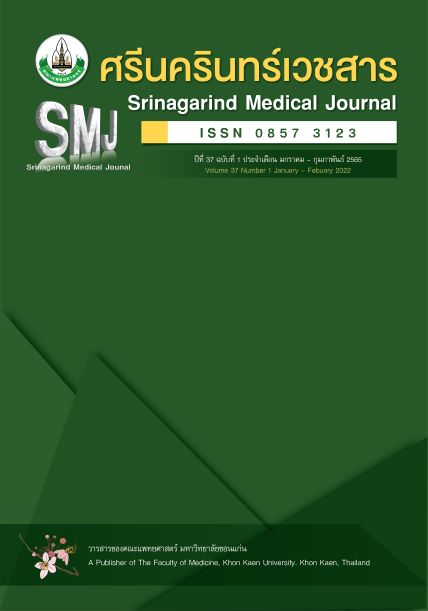เกณฑ์ปรับปรุงใหม่ในการวินิจฉัยการติดเชื้อที่เกี่ยวกับกระดูกหัก
Abstract
Updated Criteria for Diagnosing Fracture-Related Infection
บทคัดย่อ
การติดเชื้อที่เกี่ยวกับกระดูกหัก (fracture-related infection) เป็นภาวะแทรกซ้อนรุนแรงที่พบได้ภายหลังกระดูกหักโดยเฉพาะกระดูกหักแบบเปิด (open fracture) การวินิจฉัยภาวะดังกล่าวเป็นสิ่งที่สำคัญและท้าทาย หากแพทย์ทำการวินิจฉัยถูกต้องและรวดเร็วจะสามารถเพิ่มความสำเร็จในการรักษา ป้องกันสภาพการที่เสี่ยงต่อคุณภาพชีวิตของผู้ป่วย เช่น กระดูกไม่ติดหรือการตัดขา ตลอดจนลดค่าใช้จ่ายในการรักษาได้ อย่างไรก็ตามเกณฑ์การวินิจฉัยการติดเชื้อที่เกี่ยวกับกระดูกหักยังคงมีหลักฐานทางวิทยาศาสตร์สนับสนุนอย่างจำกัด จุดประสงค์ของบทความนี้เพื่อสรุปหลักฐานและคำแนะนำสำหรับใช้ในการวินิจฉัยการติดเชื้อที่เกี่ยวกับกระดูกหัก
คำสำคัญ: การติดเชื้อที่เกี่ยวกับกระดูกหัก; เกณฑ์การวินิจฉัย; คำนิยาม; การติดเชื้อ; กระดูกหัก
Abstract
Fracture-related infection (FRI) is a severe complication after fracture especially open fracture and can pose an important diagnostic challenge. Accurate and rapid diagnosis of FRI is critical issue for increasing clinical outcomes, preventing risks to patients’ quality of life such as nonunion or amputation, and decreasing in healthcare costs. However, there is a limited amount of scientific evidence regarding diagnostic criteria for FRI. The purpose of this article was to summarize the available evidence and provide recommendations for the diagnosis of FRI.
Keywords: fracture-related infection; criteria; definition; infection; fracture


